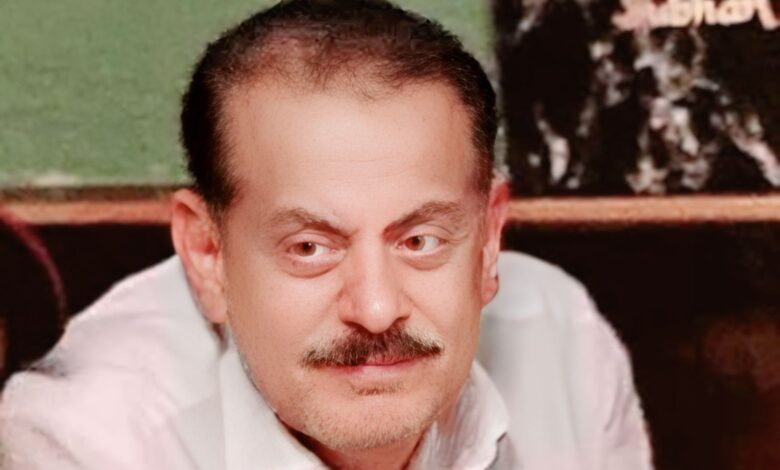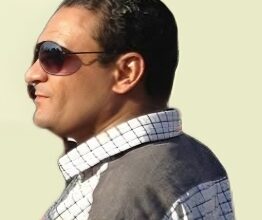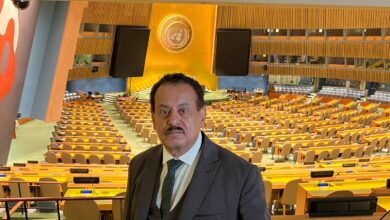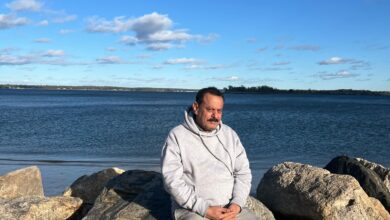After Twenty-Five Years, What Haifa Confessed

Yemeni mp
Ahmed Saif Hashed
After twenty-five long years, I finally confided in Haifa. I told her what I had hidden in silence for so long. I revealed that she was the one I had meant in my writings. In turn, she opened her heart to me with words I had never expected. She said:
“I never knew of your feelings toward me. I never realized you carried such emotions for me. I am a very simple woman, and I always looked at you as a role model in the academic field, a figure of great stature. It never crossed my mind that you were drawn to me. I had heard much about you, and in a way I both respected and feared you. I felt you held me in esteem because of the regard you had for my father and my family.
What most caught my attention was your brilliance and your shyness. We worked together during University Student Week, and I always felt you were nervous, hesitant, and shy. I thought this was simply your nature, especially with women.
My sister once told me that if I needed something or had a question about my studies, I should ask you. But I hesitated, holding myself back because of the shyness I saw in you. I thought I might be a burden. I assumed your awkwardness was simply who you were.
I still remember standing before the wall magazine at the college. Your poem caught my eye, and I read it. Yet it never occurred to me that I was its inspiration.
I once asked about you and was told you were married with children. I did not know you were still single. That made me fail to understand your nervousness, so I always explained it away as part of your nature in dealing with women. I never thought your feelings toward me went beyond respect.
Had you spoken then and told me what was in your heart, my life might have changed, perhaps even completely. I was searching for a love to quench the thirst of my soul, but I never found it. Perhaps if I had read your poem and known it was written for me, or if you had gifted it to me, everything might have been different. I never realized you loved me. Many around me tried to draw closer, but after my engagement, they all faded away.
You, my friend, had the gift of words. Fate, however, is deaf and mute, and perhaps it chose what it believed was best for you.
My colleague Huda once said to me: ‘This young man is deeply in love with you.’ And I would reply: ‘Impossible. He is married, shy, and shows me nothing but respect and kindness born of his regard for my family and my late father’s legacy.’
I was never aware of the beauty of my eyes, so I did not sense the admiration you spoke of. I never noticed that my glances carried the magic you described, or that my steps had the rhythm you once wrote about.
The most beautiful thing, though, is that you now speak of your love in the past tense. That alone tells me you have overcome it.
I still remember passing by you and your colleagues. In those moments, I would become even more reserved, avoiding them, thinking they carried views of women that neither pleased me nor rose to what I hoped for.”
I kept reading and following what you published about your life story. You have suffered so much, my friend. I felt deep pain for your aunt, for her death and her grave. Your style is so powerful that it makes me cry as I read. Your metaphors are tender and beautiful. Yet I tried to find myself between the lines you wrote, and I could not see myself in the way you described. Perhaps some events happened differently, for I never noticed in you that love you now speak of, in a time that has passed and will never return.
I was never that aristocratic girl you portrayed, my dear. I was far more ordinary. As for beauty or social standing, I did not possess the qualities you attributed to me in your writings.
I do not want this longing to ache in your soul, my friend. You are sensitive, simple, and deeply sincere. Forgiveness and forgetfulness are your nature. Truly, this pain will weigh on you, and what we live through today is burden enough, filled with suffering and bitterness more than one can bear.
Against your usual nature, I once dreamed of you after your election to parliament. I dreamt that you came to my house with guards, seized my hand with force, and your eyes flashed with sparks of anger as you said: now I can take you for myself. I was bewildered by the fury in your eyes and the harshness in your manner. For a long time I remained unsettled by this dream and the mystery within it.
* * *
I met Haifa again after more than twenty-one years of absence, in Change Square. Injustice had gathered us, and each of us carried a story. I despised the ugliness of politics, refusing to surrender my great dream of a utopian city that perhaps has no place in existence, while Haifa was deeply realistic and pragmatic in her politics.
Haifa married more than once. As for me, I married a woman while searching for one who would share with me joy and sorrow, and walk with me through the fire. I loved the woman who became my wife, loved her from a single glance, loved her in one sweeping moment, bound by a contract that would last until the end of our lives. We baptized our love with challenge and endurance, and rooted it in the shared life of seven sons and daughters. I never once thought of marrying another, never entertained the idea of taking a second wife. For me, such an act would be a betrayal of the conscience I carry, a distortion of the spirit I have always sought, and a wound upon life itself in an already unjust world.
Before this cursed war began, I encountered Haifa once again in the distance. I told her of my love, of my torment, of the story between us, and I laughed, and she laughed with me. Yet my laughter was the grinding sound of a millstone, and in that moment I remembered what I once read, that he who laughs loudly is often hiding beneath his laughter a reservoir of deep sorrow.
* * *
After a quarter of a century, Haifa confessed what she had never confessed before. In her reflection I saw fragments of myself and truths I had not known. The war divided us and reshaped each of us into perhaps the opposite of the other. Yet perhaps the future will uncover what was hidden, or bring forth the truth in all its bitterness, a truth that was buried or veiled from us.
After a quarter of a century, almost everything had changed. Changes we never imagined, transformations beyond our wildest reckoning, both on the personal and the public level. Shifts so profound that in those days our imagination could never have foreseen them. I never thought I would live to see this day, to pass through all those stages, all those contradictions and violent turns, all the shocks and tremors of a reality so fantastical we could never have dreamed it.
I never imagined the day would come when we would be forced to sign away our freedom openly, in daylight, without shame or hesitation. I never thought that clerical rule would return to govern us with such ignorance and savagery, and in the third millennium. I never thought that occupiers would rule us before the eyes of the world with such raw primitivism. I never imagined corruption could reach this level of recklessness, this audacity, granting the sons of the corrupt scholarships while they study Arabic in India.
Because of corruption and its ravenous spread, the homeland was lost. It slipped from our hands, seized and occupied in a way we could scarcely believe. And what is hidden is even greater, even more terrifying.
* * *






